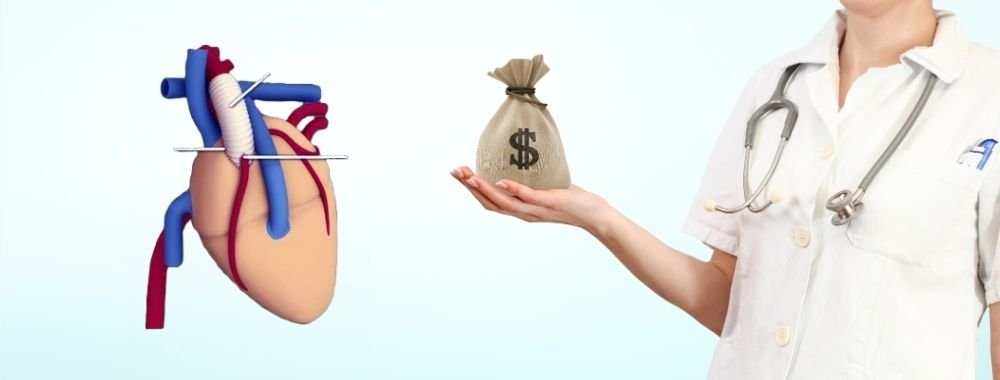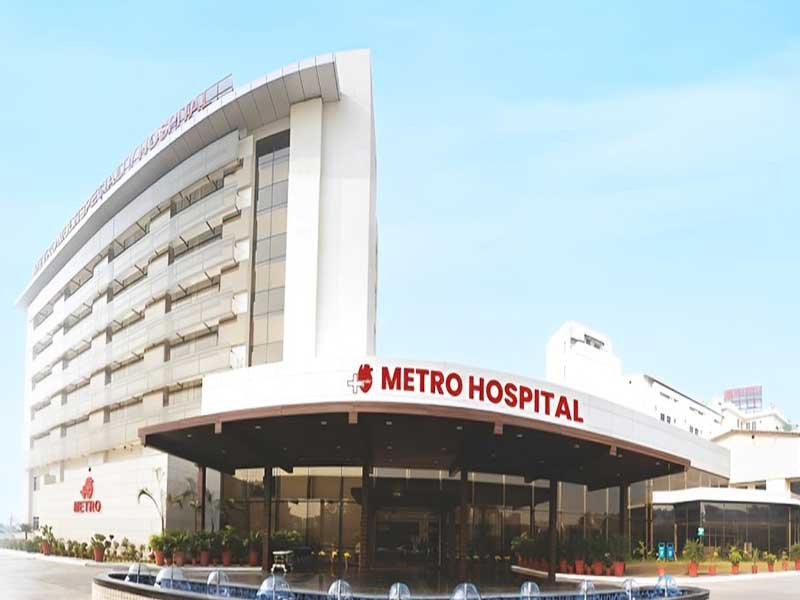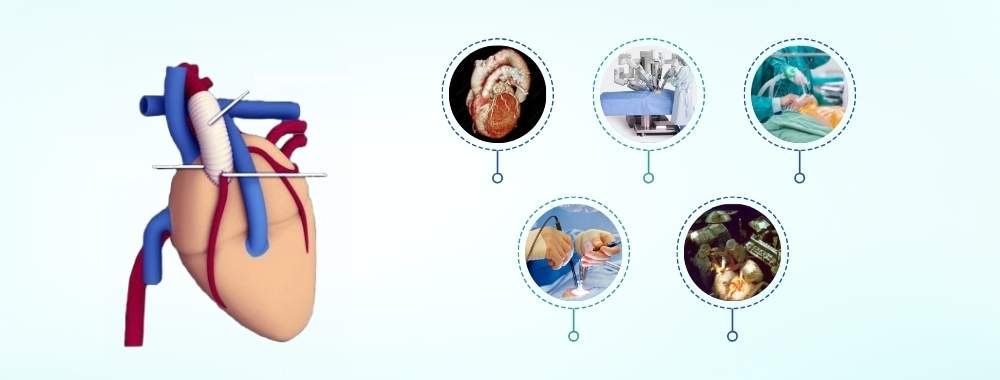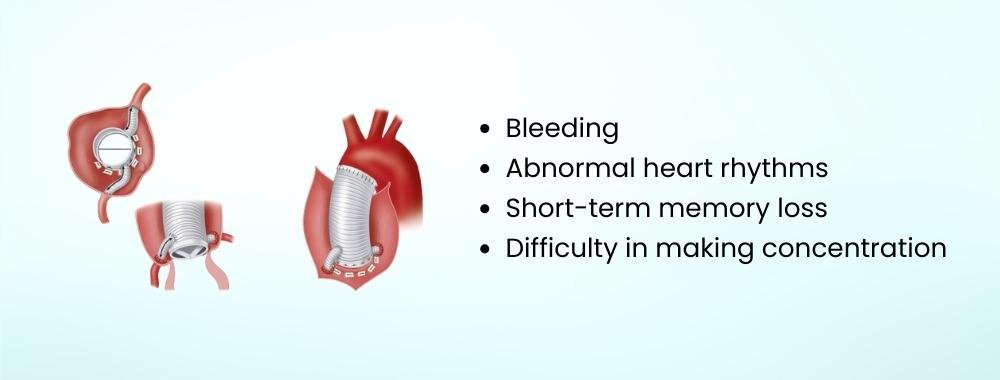Bentall Procedure in India is a top choice for International Patients. The reason behind this is the affordability and Quality of procedure compared to Western Countries
Recovery Time
2 - 3 Weeks
Success Rate
97%
Hospital Stay
7 Days
Treatment Type
Surgical
Home Treatments Cardiac Surgery Bentall Procedure
Are you looking for an affordable option for the Bentall procedure without giving up on quality?
Many Western countries offer great care, but the high cost can cause financial stress. That's where India comes in, offering modern healthcare facilities, skilled surgeons, and advanced technologies at much lower cost, 11,000 to 12,000 USD.
Choose India for your Bentall procedure and get top-quality medical care that’s affordable and tailored to your needs.
Minimum Cost | Maximum Cost | Hospital Stay | India Stay |
9500 USD | 12,000 USD | 7 to 14 days | 20 days |
The Bentall procedure is a type of surgery that is used to treat serious problems with the aorta, which is a major artery in the body. This procedure is particularly helpful for patients whose aortic valve, which helps control blood flow from the heart, is damaged.
During the surgery, doctors replace a section of the aorta, called the ascending aorta, with a special artificial tube made of strong material. They also remove the faulty aortic valve and put in a new valve that works better, connecting it to the artificial tube. This method helps make the aorta stronger and improves blood flow, reducing the strain on the heart.
The Bentall procedure is usually recommended for patients facing serious health issues, such as those with Marfan Syndrome, a condition that affects connective tissue, or other heart-related problems like bicuspid valve disease, where the aortic valve has an unusual shape, or aortic enlargement, where the aorta becomes too big.

• Choice of Hospital: Hospitals with international accreditation, like JCI or NABH, follow higher standards, which often leads to higher surgical costs due to the superior quality of care provided.
• Surgeon’s Expertise: Surgeons with more experience typically charge higher fees. However, choosing a skilled surgeon often results in better outcomes, quicker recovery, and overall peace of mind, making it worth the cost.
• Technologies Used: The cost also depends on whether you choose traditional surgery or advanced techniques like robotic or minimally invasive surgery, which are more expensive due to the advanced technology involved.
• Hospitalisation Costs: Your hospital stay will affect the overall cost, including the type of room you choose—private or deluxe rooms cost more than shared rooms. The length of your stay also impacts the final bill.
• Cost of Diagnostic Tests: Before surgery, tests such as Cardiac MRI, Echocardiogram, and X-rays are performed to assess your condition. These tests can add to the overall cost of the procedure.
• Complexity of the Care: The complexity of the case is a key factor that can greatly affect the cost of the procedure. Patients with additional health conditions or complications may require longer surgery times, more specialised care, or advanced techniques, all of which can increase the overall cost of treatment.
• Rehabilitation and Physical Therapy Costs: After surgery, rehabilitation and physical therapy are essential for regaining strength. The longer the therapy, the higher the cost of recovery.
• Additional Medical Conditions: If you have other health issues like diabetes or kidney disease, the procedure may cost more due to the need for extra medical monitoring and longer hospital stays to manage these conditions properly.
Bentall Procedure cost
Treatment Name
Estimated Cost
Bentall Procedure 11000-12000 USD
The total cost of the Bentall procedure usually includes the surgery fees and hospital charges. However, there are extra costs for things like tests, medications, rehabilitation after surgery, and follow-up visits. Here is a simple breakdown of these expenses:
Cost Component | Details | Cost in INR |
Pre-operative Consultation & Diagnosis | Consultations, X-rays, MRI scans, blood tests | 49,800 - 66,400 |
Surgery Costs | Includes surgeon fees, type of surgery, type of implant, and hospital stay | 11,000 to 12,000 USD |
Rehabilitation and Follow-up | Physiotherapy sessions, medications, supportive devices, and follow-up visits | Variable by Procedure |
Fill in your details and we'll get back to you soonGet Free Treatment Quote
India | 11000-12000 USD |
United States | 68000 USD |
Germany | $23434 |
Turkey | 17000-24000 USD |
Key Takeaways
✅ Affordable Treatment Costs:
The cost of the Bentall procedure in India is significantly lower compared to Western countries. You can save up to 60% to 70% on the overall cost without compromising the quality of treatment.
✅ Advanced Medical Technology:
Indian hospitals are equipped with state-of-the-art technology and modern infrastructure that provide high-quality care, comparable to international standards.
India is a top choice for patients looking for affordable Bentall surgery, with many hospitals offering excellent care and skilled doctors:
India is considered one of the best destinations for cardiac procedures due to the combination of skilled cardiologists who are dedicated to providing quality care to patients.
You know the best part, India annually performs 60,000 open heart surgeries, with higher success rates, as compared to other Western countries.
Indian heart surgeons are highly skilled professionals, and many have received their training from top institutions around the world.
Well, one of the main reasons why international patients choose India is India’s affordable cost, which is 60 to 70% less as compared to other Western countries.
Indian hospitals also offer seamless services such as dedicated international patient departments, staff members, and also provide post-surgical rehabilitation programs. Additionally, advancements in research and collaboration with global medical bodies show that Indian hospitals are equipped and updated with the latest techniques, which makes them a better option for cardiac treatment.
If you're having problems with your aorta, the main artery in your body, your doctor might suggest a procedure called the Bentall procedure. However, some common complications can happen with this surgery.
Here are reasons why the Bentall procedure may be necessary:
These hospitals are known for their advanced cardiac treatments. They are accredited by JCI or NABH and are equipped with the latest technologies and modern treatment options to ensure top-quality care.
Beds: 539
New Delhi
Beds: 230
New Delhi
Beds: 710
New Delhi
Beds: 650
New Delhi
Beds: 191
New Delhi
Beds: 310
New Delhi
Beds: 299
Gurugram
Beds: 380
New Delhi
Beds: 402
New Delhi
Beds: 1300+
Gurugram
Beds: 1000
New Delhi
Beds: 450
Faridabad
Beds: 675
New Delhi
Beds: 500
New Delhi
Beds: 400+
Faridabad

Max Super Speciality Hospital, Saket

Aakash Healthcare Super Speciality Hospital

Indraprastha Apollo Hospital

BLK Max Super Speciality Hospital

Dharamshila Narayana Superspeciality Hospital

Fortis Escorts Heart Institute

Fortis Memorial Research Institute

Manipal Hospital Dwarka

Max Super Speciality Hospital Shalimar Bagh

Medanta - The Medicity Hospital

Moolchand Kharaiti Ram Hospital

Sarvodaya Hospital

Sir Ganga Ram Hospital

Venkateshwar Hospital

Metro Heart Institute with Multispecialty
These cardiac surgeons are highly skilled, with over 25 years of experience. Many have received international training and have won awards for their medical expertise.
Adult Cardiac Surgery & Heart-Lung Transplant Surgeon 30+ Years of Experience
Dr. Prof. Surendra Nath Khanna
Before having the Bentall surgery, doctors perform several tests to check your health and make sure you're ready for the procedure. These tests include:
Tests | Description |
X-ray | This helps to create images of your internal organs. |
Echocardiogram | This test checks for any problems with your heart. |
CT Scan | A technique that provides detailed images of your body. |
Ultrasound | High-frequency sound waves are used to see inside your body. |
After these tests, your doctor will review the results and consider different factors to decide if the surgery is the best option for you.
🟢 Dos
🔴 Don'ts
Here is the detailed information on how the Bentall procedure is performed:

India has now become a global hub for Bentall procedures because of its advanced technologies that make surgery more accurate and personalised. Now let's discuss them in detail.
These technologies create clear, detailed images of the heart, helping surgeons plan procedures with greater accuracy.
In some Indian hospitals, robotic-assisted surgery is used to increase precision. The robot’s arms help the surgeon perform the surgery with more accuracy, reducing human error and leading to better results.
During surgery, TEE provides live images of the heart, allowing surgeons to monitor how well the heart valves are working and ensure the new graft is placed correctly.
The minimally invasive approach to the Bentall procedure is called the Mini Bentall Procedure. This technique uses smaller incisions compared to the traditional full sternotomy, resulting in reduced recovery time and less scarring.
Also known as the heart-lung machine, this device is used during the Bentall procedure. It temporarily takes over the function of the heart and lungs, allowing surgeons to stop the heart while treating the aorta and aortic valve.

The Bentall procedure is a surgery used to treat problems with the aortic valve, the ascending aorta, and the aortic root. However, like any surgery, there are possible complications, which may include:
Uncommon risks
After the Bentall procedure, patients usually stay in the hospital for 7 to 14 days, depending on their health and if there are any complications. The initial recovery includes:
Physiotherapy and Rehabilitation are key parts of recovery after the Bentall procedure. Here are some important points recommended by your doctor:
• In-Hospital Care
While you're still in the hospital, your medical team will encourage you to begin light activities. They will help guide you through exercises to aid your physical recovery.
• Post-Operative Care
After leaving the hospital, it's important to follow these instructions:
• Cardiac Rehabilitation
Your doctor may advise you to join a cardiac rehabilitation program. These programs often include muscle-strengthening exercises and interval training to help rebuild your strength and improve heart health.
Note: If you're considering physiotherapy and rehabilitation after surgery, you will likely need to cover the cost yourself. Medical tourism providers usually do not include these services in the Bentall procedure, as they are not considered essential for recovery.
The recovery time after the Bentall procedure can vary depending on factors like your hospital stay, medications, and overall health. However, the estimated recovery time is about 1 month.
The Bentall procedure has a high success rate of around 95%, making it a reliable option for treating patients with aortic valve and aortic root problems. However, the outcome depends on the patient's overall health and the presence of any complications.
Team of Top Cardiac Surgeons: We recommend that you have more than 20 years of experience in cardiac procedures.
JCI/NABH Accredited Hospitals: We have also partnered with hospitals that have State-of-the-art Facilities that are equipped with the latest technologies, such as robotics, machine learning, and cutting-edge diagnostic and therapeutic equipment, designed to offer you comprehensive and personalised care.
Other Benefits: Mejocare offers a variety of services, including medical visa invitation letters and guidance through visa procedures and formalities. From airport pickups and drop-offs to hotel bookings and 24/7 patient support, they ensure a seamless experience for international patients.
Additionally, we provide hospitalisation assistance, local SIM cards, and fit-to-fly certificates for patients ready to travel after treatment.
The Bentall treatment is a surgical operation that involves replacing the aortic valve and roots. This surgery treats aortic difficulties like aneurysms or aortic valve illnesses by removing the damaged aortic root and replacing it with an artificial graft. Bentall procedures remove damaged aortic valves. However, there are complications to performing this surgery. If you are considering the Bentall operation, check with your cardiac surgeon for more.
Disclaimer
The information available in this article is for general information and this information does not intend to provide you a accurate information about cost estimates and other factors. So, if you want a professional opinion to get an accurate cost estimate and other information, then Mejocare is here to help you every step of the way. Contact now.

Medically Reviewed By
QualificationsMBBS, DTMU University, Georgia,Radiation Oncology Resident at Burdwan Medical College and HospitalDr. Aryan Malhotra is a skilled and caring doctor. He is a Radiation Oncology Resident at Burdwan Medical College and Hospital. He treats people with cancer and works closely with patients during their treatment.He completed his MBBS from David Tvildiani Medical University in Georgia. He has passed the USMLE... Read More
The average cost of Bentall Procedure Surgery in India is between 11000-12000 USD.
The success rate of Bentall Procedure Surgery in India is around 95-97%.
You'll spend around 1 to 2 days in the ICU for close monitoring. Following that, expect a brief hospital stay until you're well enough to go home.
After the Bentall Procedure in India, expect fatigue initially. Recovery takes time, often several months. Cardiac rehab can help. Your healthcare provider will guide when to resume normal activities.
The long-term survival rate for the Bentall procedure is 93% after 5 years and 89% after 10 years.
During a Bentall Procedure, potential risks include bleeding, abnormal heart rhythms, memory problems, blurred vision, difficulty concentrating, infection, lung/kidney issues, heart attack, stroke, blood clots, and in rare cases, death. It's important to discuss these risks with your healthcare team.
Your medical team will guide you through a physiotherapy routine to increase activity levels while in the hospital. They'll also teach safe body movements and breathing exercises to aid your recovery, especially considering the 6-8 week healing time for your breastbone.
Yes, it is necessary to have a companion during the hospital stay after Bentall Procedure Surgery in India.
It's best to avoid flying for at least 4 weeks.
Managing pain involves prescribed painkillers to ease muscle and wound discomfort for a few weeks. If pain persists, consult your doctor. Medications are also given to reduce infection and lower the risk of additional heart-related issues.
Yes, insurance will cover the cost of Bentall Procedure Surgery in India.
Most people need between 6 and 8 weeks to fully recover from Bentall Procedure surgery. When you are discharged, you’ll be given detailed instructions for medicines, wound care, regular exercise, and resume daily activities.
To discover the top doctors or hospitals in India, you can visit our website. On the doctors' page, you can filter and find the finest doctors, while on the hospital page, you can identify the best hospitals. Additionally, you can reach out to us, and we will gladly offer you all the necessary suggestions and information you need.
Bentall Procedure Surgery typically lasts between 4 to 6 hours, occasionally extending to 8 hours. Following the surgery, patients remain under general anesthesia for an additional 4 to 6 hours before awakening and having their breathing tube removed.
There is no waiting list for Bentall Procedure Surgery in India.
You'll spend approximately 1 to 2 days in the intensive care unit (ICU) under close monitoring of your heart, blood pressure, temperature, and breathing. Your hospital stay will extend for a few days until you're deemed fit to be discharged and continue recovery at home.
Before Bentall surgery, you'll have pre-op tests—heart/lung checks, blood/urine tests, and chest X-rays. They're vital for complex cases, ensuring the best surgical plan and identifying any needed extra care or changes beforehand.
You'll be given medications that put you in a sleep-like state (general anesthesia) for the majority of Bentall Procedure repair and replacement procedures so you won't experience any pain during the procedure.
Most patients need between 6 to 8 weeks to recover from Bentall Procedure Surgery, after which one can resume work and normal activities.
For better heart health, the American Heart Association suggests specific foods. Focus on plenty of dark-colored fruits and vegetables rich in antioxidants—they're beneficial. Whole grains like brown rice, quinoa, oats, and barley, along with whole-grain bread, are good choices. Opt for plant-based proteins like soy, beans, lentils, nuts, and seeds. Consider low-fat or fat-free dairy, fish, and seafood. Stick to minimally processed foods like lean beef, poultry, liquid plant oils, and liquids—they're healthier options to consider for your heart.
Most patients are able to ascend a flight of steps following surgery once they are released from the hospital.
Following surgery, you'll be monitored in the hospital for 8 to 10 days. After discharge, our medical team will continue your care. Our cardiac rehab program offers peer support groups for patients sharing similar surgery experiences.
Our care team can help you.
